From Shpendi Topollaj
The fifth part
Memorie.al / When the symbols of communism, after half a century of struggle, collapsed, there was such a loud noise that we woke up from our deep sleep. We opened our eyes, but not all of us believed what had happened: often, as a person sees some dreams that he takes for truth, he also sees some truths that he takes for dreams. Moreover, there were not a few who opposed this historic upheaval, with demonstrations and even threats. To overcome this situation, patience and wisdom were needed. We were brothers. As such, we had an intellectual, moral and spiritual duty to denounce the demagoguery of communism and the monstrous crimes of the red inquisition. Of course, the most reliable were those who had languished and suffered in prisons and exiles. Silence would really be a great sin of theirs…!
Continues from the previous issue
PATIENCE – THE MOST HEROIC VIRTUE
Gëzim Medolli’s book “The Globe in the Web”.
When Rene de Jouvenal admitted that “hypocrisy is the honor that vice gives to virtue”, he did not even think that communism, which he tried to defend with such fervor, would eventually transform vice into virtue and virtue into vice. This is how I started these series, dedicated to the impressive book; “Globe on the net”, to affirm from the beginning, that we are in front of a joyful fact: the new post-communist literature is taking shape and is being contoured full of life and truth, like everything that comes from the soul, not from the dictation of the recipes of the drawers, of the servile and mediocre bureaucrats.
What happened in this half century in Albania, will be an endless “mine” of topics for artists and writers, as it is said in the book: “If from the mouth of Shakespeare’s characters, the words: ‘Horror, horror… ‘, try to put this unified binomial on a super-horror, that the famous Lorenc Oliveri, will not be able to recite it”! The slaves – gladiators, of the school of Lentula Batiola in Capua, will have always lived the anxiety of words; “Vae victis”, that is, “Woe to the vanquished”, while they ruled bloodthirsty, like Luç Kornel Sila.
The great Napoleon, as Count Las Kazi asserts, in the “Memorials of Saint Helena”, when he encountered a column of enemy captives on the road, he held his horse, gave military honors and solemnly saluted: “Honor and glory to the unfortunate brave”.
And Enver Hoxha, towards his citizens of the same blood, behaved worse than Nero, who was guided by the cruel motto: “Fame, Festa, Forka” (hunger, celebrations, tripod), and put him in the position of the defeated, not only the opponents, or the innocent, but also those who begged for him, and who for his gene-idea, were ready to go to the stake, even their father.
Joy! What you experienced unjustly in your fragile body, what crushed your poetic soul, everything humiliating, which is engraved in your memory and which will follow you for the rest of your life, makes me call you brother. And above all, your strength.
You remembered that you were in a very long and exhausting dream and, from time to time, you asked yourself; “What had I done to society”?! But it was the segments of society that, on your white pride, put the heavy weight of shackles, threw mud, spit and stones, deprived you of passionate desires, for a single youthful kiss; however, you knew and forgave them, and loved them, from prison.
It’s weird; bring near the book of Joy, the famous book of Aleksandr Solzhenitsyn; “A day of Ivan Denisovich” and you have to see, an incredible similarity. To be convinced that the author of “The Globe in the Web” at that time had no way of knowing this rare anti-communist creation. What is this, a coincidence?! No! Dictatorships are like two drops of water, especially the red ones.
The co-sufferer of Gezimi, the poet Visar Zhiti, who of course did not know the content of “Globe in the net”, wrote in October 1992: “In this book (it is about Solzhenitsyn’s book), we also find the logic of the illogical Albanian prison, the shameful terror and the hopelessly same dialogues. Intimacies are the same: the spoon hidden in the cracked boots.
Politicized nonsense, yes: someone there believed that; the sun rose at the zenith, at the hour set by a decree, by the Soviet government, while in our country, another believed that the comets had their tails put on them by the party that nothing was left without a tail on them.”
And indeed, Shukov, like our protagonist, gets up at five in the morning and let him try if he wanted to be late, a single minute! Miserable food, for both: one eats soup with oats, with which he used to fatten the horse, the other a disgusting liquid, in which, instead of a few beans, worms were often found.
The different controls and espionage, the same: operatives with the same mission, prison terms for the same reasons, the same barracks, the same barbed wire, the same beating methods, the same ritual of removing the hat, when you see that the police approach, the doctors as if they had been cut by the same scissors, just as hard-hearted, the same attitude for not realizing the norm, the same humiliating way of collecting cigarette butts, the same sad and cold landscape, the same solidarity between prisoners, the same, even though no one knows why he is there, both have been sentenced equally, with long terms of imprisonment.
However, in the “Globe on the net”, there are also things that the fantasy of the Russian Nobel laureate could not imagine. Thus, in chilling and shocking tones, the book describes the moment when the policemen cut off the head of a dead man and play football with him. Also, when someone died, after being kicked to the ground, the squad of policemen played the labe dance:
“Who’s turn tomorrow—oh?
Beautiful of Korça – oh,
Let’s put it on a hu – oh,
And roast it on a spit – o”!
For this, the author writes: “Desiring someone’s death and singing to this death, accompanying it with dances, I believe that even the most cynical act would shudder in the dusty files of human punishment. The communist choreography, which kept physical nudity, was performed naked, with crime rhythms.
But there was no way it could happen otherwise, in the Sigma star, where this cynicism was reflected, as soon as you entered its threshold, where the macabre expression was read on the concrete: “Burrel, enters and does not come out”, just like in the Dantesque hell. During the reading, we meet an imprisoned professor who, when his brother dies, he is imprisoned, does not tell, but puts a cigarette in his mouth, in order to get an extra ration for his friends.
Someone begs to break his hand or leg, just so he won’t go to work. The wise Dibran Zabit, the guard Gjin, forces, after taunting him, to bite the intestines of a dead mouse. The big prison rats, sometimes perverted and sometimes introduced by the Security, even violently practicing homosexuality, eternally kill human dignity, or force these unfortunates to commit physical suicide, unable to bear the shame.
In Albanian prisons, re-sentence was widely practiced, this diabolical invention, which took the form of an unprecedented institution. And why; because someone contemplates the shades of the rainbow, another why he gazes at the raindrops, a third why he points to the regularity of the stars of the Great Bear, or why he sings a foreign song.
Paradoxes follow each other: at the same time as spelling congresses were held, the command did not allow the prisoners to put punctuation marks in the rare letters they send to their families, because according to them, they could represent some code of secret and, therefore, messages can be encrypted.
And these unfortunates, dressed in bleached clothes, bald and unshaven, sitting on the blackened wooden benches, forced them to read the idiocies of Enver Hoxha’s works, to which history, more powerful than any court, gave them the place they deserved; in the trash can.
In addition to those we described above, an important place is occupied in the book; resistance, preservation of human qualities and values, belief in the end of communism, forgiveness, up to the most sublime act, such as the well-known revolt of May 21, 1973, the moment when every drop of humiliated blood turned into a terrible hurricane of retribution and which entered the psychology of the prisoners, as a point of reference, so much so that they asked: “Before the revolt, or after the revolt”, just like in world history: “Before Christ or after Christ”. Voltaire, in “Spirtçiltri”, says that; “there is no place in the world where love has not made lovers poets”.
While Gëzim Medolli, affirms that; “Hate made me a poet” and adds that; even when I hated, I wrote about love. He wants a girl with black eyes, a peasant girl, about whom Shollohovi would say; “beautiful as a genie”, but with which the monstrous class war, has separated her. However, this love accompanies him step by step, eases his pain as much as possible and gives strength to our “Theseus” to defeat the monster in the labyrinth built by Daedalus.
In this dilemma, love-hate, Joy, in the moments when the sad music of the “Rigoleto” overture would suit him, seems to feel a heaviness in his heart, a responsibility for this unlucky love, for which he is more innocent than the mythological hero himself, who abandoned his Ariadne on the island of Naxos, where out of despair, she threw herself into the sea.
Love makes a person even better. The reader understands that even if he did not exist at all, the bright mind and sensitive heart of a young man in prison, he would create with his imagination, a symbolic girl, whose beauty and freshness, he would be forgiven. , turning to him for comfort and hope, during the terrible years of hell – prison.
This is a finding, like that of the great painters, who chose a color, a detail, to break the harshness of the landscape. And it comes quite unexpectedly, on a Friday in December 1988, when the convict, after eighteen and a half years of imprisonment, is granted freedom.
We don’t know what he really felt, his soul, but when he sat down to put this moment on paper, the author does not show any special impression, not a single drop of joy (just as he says in the introduction, to never find truth, that Latin expression: “Nominum ominum est”, that is, “the name is an omen”), and putting his feet on the ground, he focuses his bitter gaze on the gloomy building of the New Prison!
It seems that he himself did not believe that pieces of drama were played there, among the most painful of his life, until they put him alive in the coffin. So, asking: “Have these really happened”?! As the rain pours down on his shaved head, he trudges on, to enter another huge prison, the size of an entire state.
When you finish reading this book, you will involuntarily catch your gaze on its cover, where a prisoner, drawn behind the bars of the cell, looks like Cavaradosti from “Tosca” by Puccini, singing the magical aria; “The stars are shining”, (in reference to the composition of the work), reminds you that those who put an entire nation in prison are alive, those who danced around a dead person are still alive, those who used a human head instead of a ball , are among us and laugh with disdain…!
The author, and others like him, are noble and forgive, but criminals do not know how to ask for forgiveness. Almost a thousand years ago, in January of 1077, Henry IV found his way to Canosa, to pray in front of the castle, for three days in a row, bareheaded and barefoot, to Pope Gregory VII. What about Albanian criminals, when will they find this way? Exactly this answer awaits the message given to us by the author’s first book, Gëzim Medolli! /Memorie.al




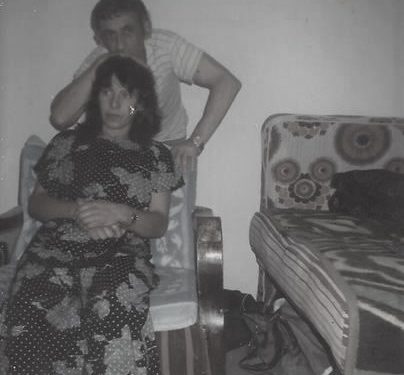
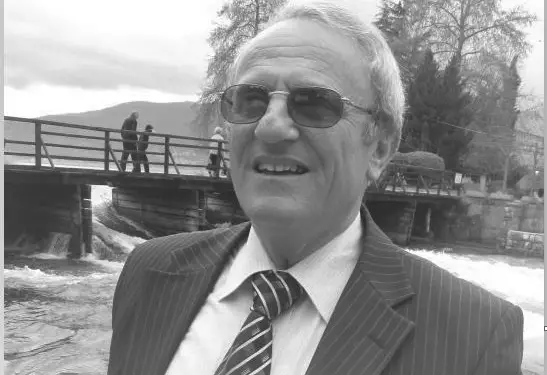
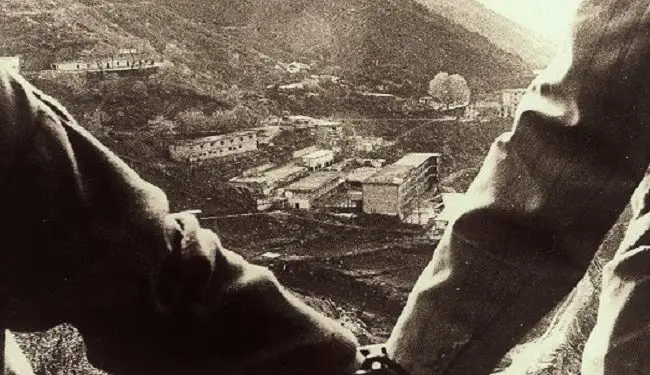
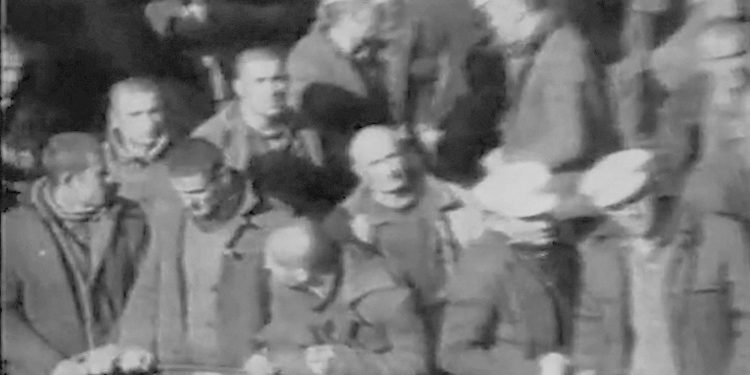
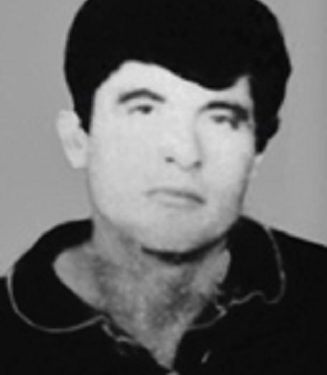
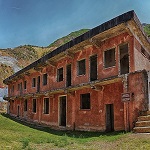

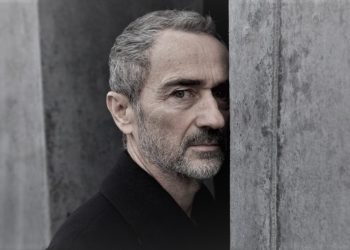
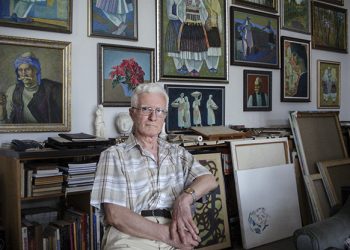
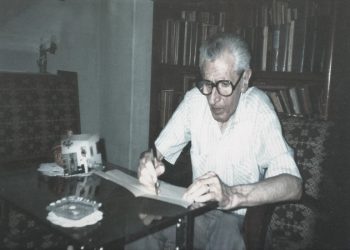
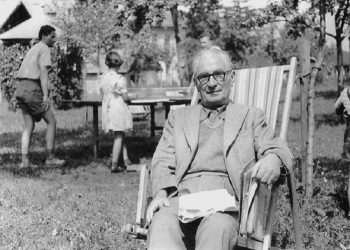

![“Count Durazzo and Mozart discussed this piece, as a few years prior he had attempted to stage it in the Theaters of Vienna; he even [discussed it] with Rousseau…” / The unknown history of the famous Durazzo family.](https://memorie.al/wp-content/uploads/2026/02/collagemozart_Durazzo-2-350x250.jpg)
